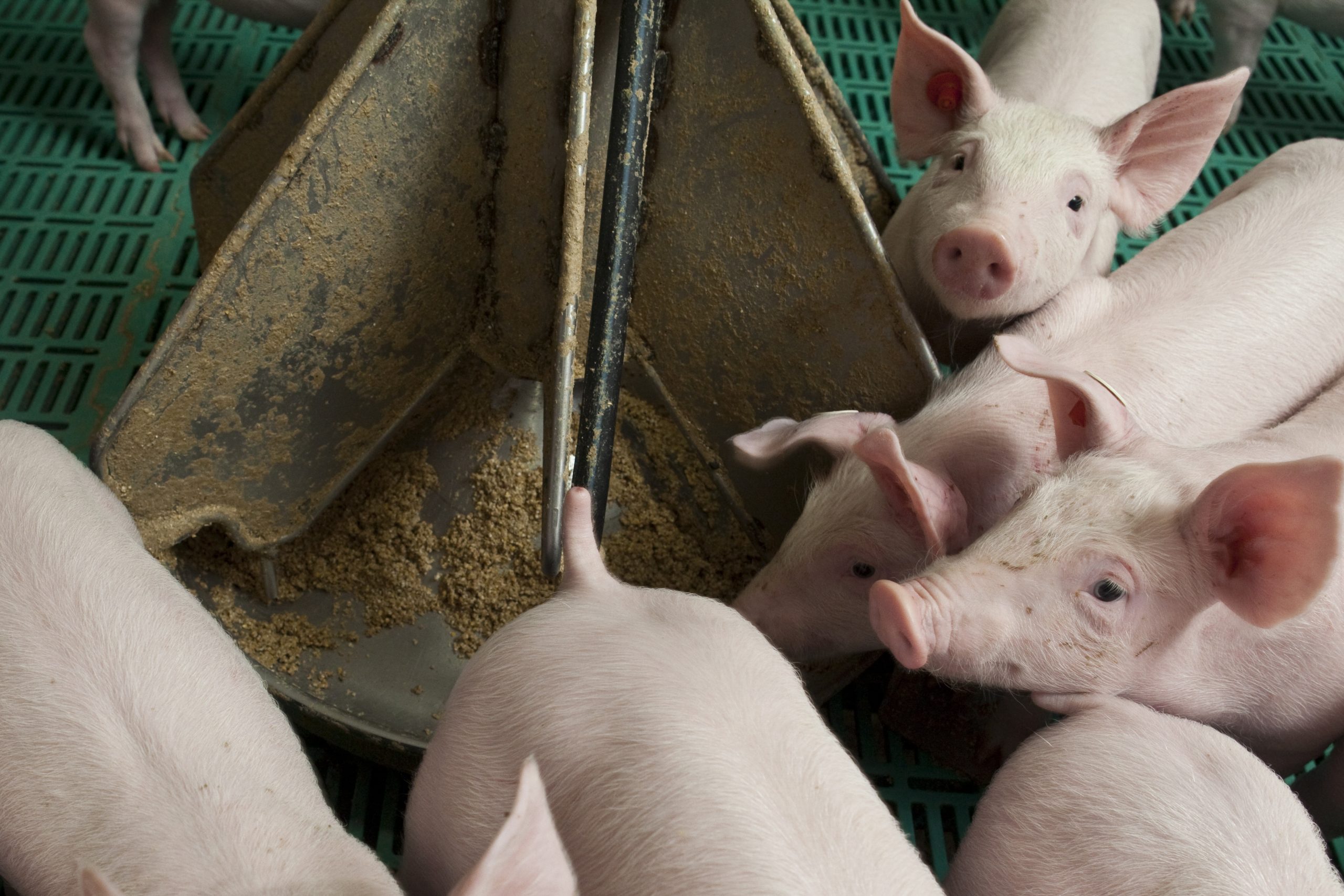Nutraferma releases new LactoPlan research

Nutraferma®, a leading innovator in biotech solutions for the animal feed industry, recently released new research showing that LactoPlan™ significantly improves average daily gain in grow-finish swine diets.
Eric Lohry, president of Nutraferma, commented, “The university research trial demonstrated that pigs fed LactoPlan were 17 pounds heavier at marketing age compared to the control. The positive results are even more compelling given the fact all groups of pigs were apparently healthy.”
Lohry also pointed to a recent study by a major feed company with broilers challenged with necrotic enteritis. “Broiler chickens fed LactoPlan exhibited a significant improvement in feed efficiency and a reduction in mortalities, compared to the untreated challenged group,” Lohry said.
Effective in controlling Salmonella typhimurium and Escherichia coli
Recent research at Virginia Tech University indicates that broilers fed LactoPlan had reduced mortalities compared to birds receiving a commercial feed-grade antibiotic when challenged with avian pathogenic E.coli. The inclusion of LactoPlan at 0.1% of the diet reduced mortalities by 71% compared to the control birds, with a 40% mortality reduction over birds fed an antibiotic.
In a second Virginia Tech study, broilers were experimentally challenged with S. typhimurium. The benefits of feeding LactoPlan were observed 7 days post-infection with the potential for increased benefits over longer treatment durations. A 10-fold reduction in Salmonella carriage was observed when measured by the most probable number (MPN) method.
A major feed company conducted a study evaluating the effects of feeding LactoPlan to broiler chickens experimentally challenged with necrotic enteritis (NE). The results of this experiment suggest that the inclusion of LactoPlan in the diets of broilers challenged with NE can mitigate performance decreases. Birds fed 0.05% and 0.20% LactoPlan had significantly improved mortality-corrected feed efficiency compared to the challenged control birds for the overall trial period. Additionally, the challenged control birds had 30.9% mortality, while the LactoPlan fed birds had reduced mortality ranging from 12.7% to 20.0%.
In an experiment conducted at Iowa State University, grow-finish pigs were fed diets containing LactoPlan. The pigs fed a diet that included 0.05% LactoPlan were 17 pounds heavier at market than pigs fed the control diet, when adjusting to constant days to market.
Healthy balance of microflora
LactoPlan’s success is not surprising, according to Lohry. “The unique Lactobacillus plantarum strain was the result of an expensive, comprehensive research project that spanned several years. LactoPlan is produced using this unique strain in a proprietary fermentation process that preserves all of the beneficial metabolites.” The result is a heat stable probiotic that has proven nutritional benefits that can be used in pelleted feeds.
As a lactic-acid producing bacteria, LactoPlan works antagonistically towards pathogens and creates an environment that supports a healthy balance of microflora. According to Dr Ishwary Acharya, an animal nutritionist and research scientist at Nutraferma, “Lactic acid producing bacteria (LABs) have been shown to produce different metabolites such as organic acids, hydrogen peroxide, diacetyl, bacteriocins, and antimicrobial peptides which have been reported to account for the antagonistic activity.” Dr Acharya pointed to another possible reason for the positive results of LactoPlan, “L. plantarum has unique characteristics of using mannose-specific adhesins, uncommon among other Lactobacilli, but common among gram-negative bacteria, which makes it possible that it competes against other potential gram negative pathogens for receptor sites at the mucosal cell surfaces.”
Heat-stable shelf-stable Lactobacillus
The microbes in LactoPlan are heat-stable, shelf-stable, and can be pelleted into feed without significant loss of viability. This innovative capability comes from combining a proprietary strain of L. plantarum with solid-state fermentation utilising a substrate that is commonly found in livestock diets. The state-of-the-art fermenters allow precise control of temperature, moisture and airflow to maximise the growth of this special facultative bacteria. According to Lohry, “the solid-state fermentation process is very different than liquid fermentation because the organisms grow on – and become incorporated in – the substrate. You cannot duplicate this advantage by diluting a liquid fermentation broth with a grain carrier in the same way some cultures are manufactured.”
LactoPlan is made by Nutraferma. Nutraferma is an innovative biotech solutions company whose research and development efforts have led to breakthroughs in the areas of direct-fed microbials, high-value proteins, state-of-the-art yeast products, bioactive peptides, and phytogenic additives. For more information, contact Nutraferma by calling +1-712-277-2011, emailing info@nutraferma.com or by visiting www.nutraferma.com.











